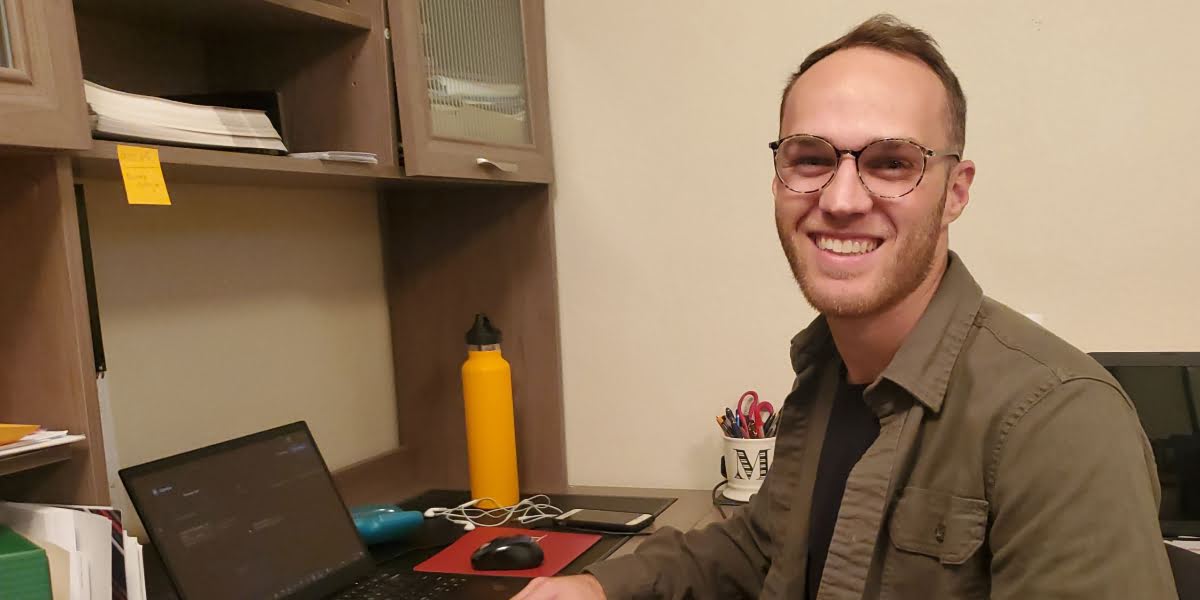Put to the test
Justin never could have anticipated the greatest challenge of his career to date—testing patients for a highly contagious virus during a global pandemic. In the early days of testing for COVID-19, he and his laboratory team facilitated drive-thru tests for a Colorado hospital. Now Justin works remotely for Diaceutics Inc., a data analytics company that facilitates communication between laboratories and pharmaceutical companies to increase treatment access for different types of cancer and genetic disorders.
What does your job involve?
I collaborate with hospital and reference laboratories throughout the U.S. to help them expedite their workflows and identify best practices for performing and reporting lab tests. When I started in medical laboratory science (MLS), I didn’t realize how broken the lab ecosystem can be. Patient results may make them eligible for certain therapies, but medical providers don’t always know what treatment options are available. The Diaceutics platform provides collaboration between labs and pharmaceutical companies, so those companies better understand the role labs play in getting patients the best treatment possible, as soon as possible.
You also worked as a supervisor in a hospital lab. What skills from the lab setting have translated well into your remote role?
As a medical laboratory scientist and supervisor, I worked on patient samples using different lab instruments and then entered results into patient medical records. Without this experience, I would not have as deep an understanding in speaking with pathologists about their practices and workflows.
Why did you decide to study medical laboratory science?
I knew I wanted to help people in the medical field, but I didn’t have an interest in working directly with patients. When I discovered that MLS was a math, science and technology-driven role that operates behind the scenes, it felt like a good fit for my passions and interests.
What did you gain from your year of clinical study prior to graduation?
The clinical year truly put the meat on the bones of becoming a medical laboratory scientist. Half of your time is spent working in the hospital lab, watching the scientists at work and slowly integrating yourself into specimen testing. The other half of your time is spent in lectures. You still have tests and papers, but clinicals are much more hands-on.
How did the COVID-19 pandemic impact your work as a medical laboratory scientist in the hospital setting?
The pandemic directly affected my work from day one. The initial question everyone needed answered was, “How do I know if I have COVID?,” and the eyes of the public immediately turned to labs. Once a test was developed, the question became, “How are we going to collect specimens from thousands of people who need COVID testing?” So, we used an old parking lot owned by the hospital and set up a military-grade tent to collect drive-thru nasal swabs. At the start, lines of cars were backed up for hours. I never imagined this would be part of my job experience, but it was super humbling to be part of history in that way.

